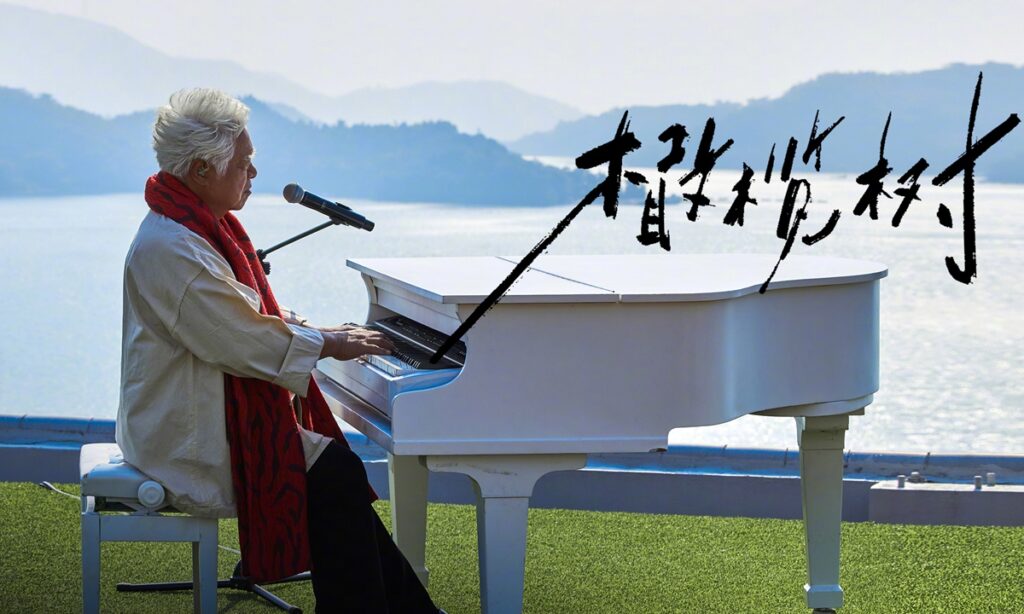Bridge of exchanges
For Miusa, a young singer from the island of Taiwan, coming to the Chinese mainland to perform in a variety shows means a lot of “firsts,” including her maiden visit to the Chinese mainland, the first time taking part in a music festival of such magnitude, and the first time performing a rap song, all of which foretells of a dazzling future ahead for the young songstress.
“I wish to travel to and sing in many mainland cities, making new friends, experiencing local cultures, and bringing music to them,” the 25-year-old told the Global Times. “I’d also like to share some of Taiwan’s cuisine and talk about the island’s beautiful landscape to create a sense of comradery with those I meet.”
Miasu made her debut on Mango TV show Qingnian Jihua‘s second episode, showcasing her vocal range as she made powerful transitions from baritone to high-octave notes, stunning audiences and judges.
The show features outstanding young talents from all over the world including emerging stars from both sides of the Taiwan Straits to compete on the same stage, birthing a new generation of taste-setters in the new-generation music scene.
Bigger stage, more opportunities
The Chinese mainland is a hotbed of young, fresh talents in the music industry, as it provides a larger stage for such talents to thrive and innovate unique sounds and styles of music.
Shows like Qingnian Jihua (Lit: Youth Plan) reflect the Chinese mainland’s spirit of cultural inclusiveness and openness, as it offers a platform to singers from various walks of life on which to nurture and develop their talent.
More and more artists from the island of Taiwan have made their way to the Chinese mainland, where they have a wider audience for whom they can perform.
Veteran singers Aska Yang, Jeff Chang and Richie Jen have taken part in the show Infinity and Beyond, while Cyndi Wang and Alyssa Chia rose to fame through appearances on Sisters Riding The Winds And Breaking The Waves respectively. Such success stories serve as inspiration to other aspiring artists wishing to make their way to the mainland to pursue their dreams.
Accompanied by singers Zhang Jie and Chen Linong at the variety show Infinity and Beyond, singer Angela Zhang sang “Yeliya Girl,” a tune written 34 years ago that harkened the “golden age” of Mandopop that swept over both sides of the Straits.
As a pop icon dedicated to being a bridge between both sides of the Straits, Zhang has participated in numerous shows on the Chinese mainland such as The Treasured Voice aired on Zhejiang TV, with the aim of expanding Mandopop’s global influence.
“I live here and I have met so many people who love me and like me. I want to respect this land. It’s a mutual respect between people,” Zhang told the Global Times, as Mandopop enjoys increasing popularity around the world.
“Chinese culture has lasted for more than 5,000 years and it is necessary to continue to pass it down. They are our roots,” said Zhang.
Actress and singer Alyssa Chia expressed her hope of taking part in more mainland TV series after she appeared on the stage of Sisters Riding the Winds and Breaking The Waves, making it far more likely that she will join the cast of yet another show.

Promotional material for Qingnian Jihua Photo: Courtesy of Mango TV
Same roots, emotional resonance
Hu Defu, also known as Ara Kimbo, a singer from the island of Taiwan also known as Ara Kimbo in his indigenous language, is still very emotional as he recalls performing with singer Ma Jiaqi from the Chinese mainland for the closing number for the show Devotion of Infinity and Beyond.
“With the cultural exchanges between singers across the Straits, the show stimulates the emotional resonance of people on both sides, conveys the values of shared cultural roots and strengthens blood ties,” said the 73-year-old Hu, the father of folk music on the island of Taiwan.
As described in the lyrics in many songs, Hu said, “The strong nostalgia and homesickness of a traveler far away from home, can only be assuaged by music which serves to connect us to those we have left behind.”
“I hope that this bridge across the Straits will widen further, so that our music culture will continue to be passed on.”
In the eyes of Shi Anbin, a professor at the School of Journalism and Communication at Tsinghua University, music programs like Infinity and Beyond have made breakthroughs in terms cross-Straits exchanges and communications.
“Music as a bridge can promote exchanges between people across the Straits and even around the whole world,” said Shi, who is also the director of the Israel Epstein Center for Global Media and Communication at Tsinghua University.
It especially allows Gen Zers to create a collection of memories around which they can form a close-knit community based on emotional connections. It also paves the way for cultural TV programs to increase their influence on international discourse, he added.
Yang Chenghu, a deputy dean of the School of Art and Media at the Beijing Normal University, believes that classic music from Taiwan brings musicians from both sides of the Straits together, and builds a bridge of national, social and cultural identity between the Chinese mainland and the island of Taiwan.
(Global Times)




